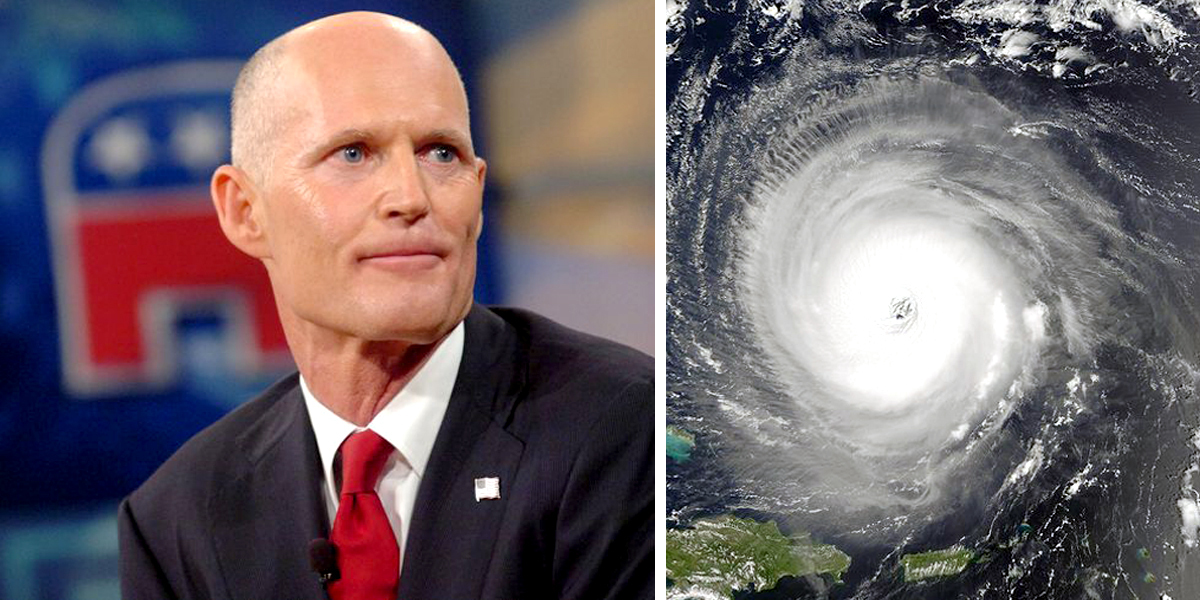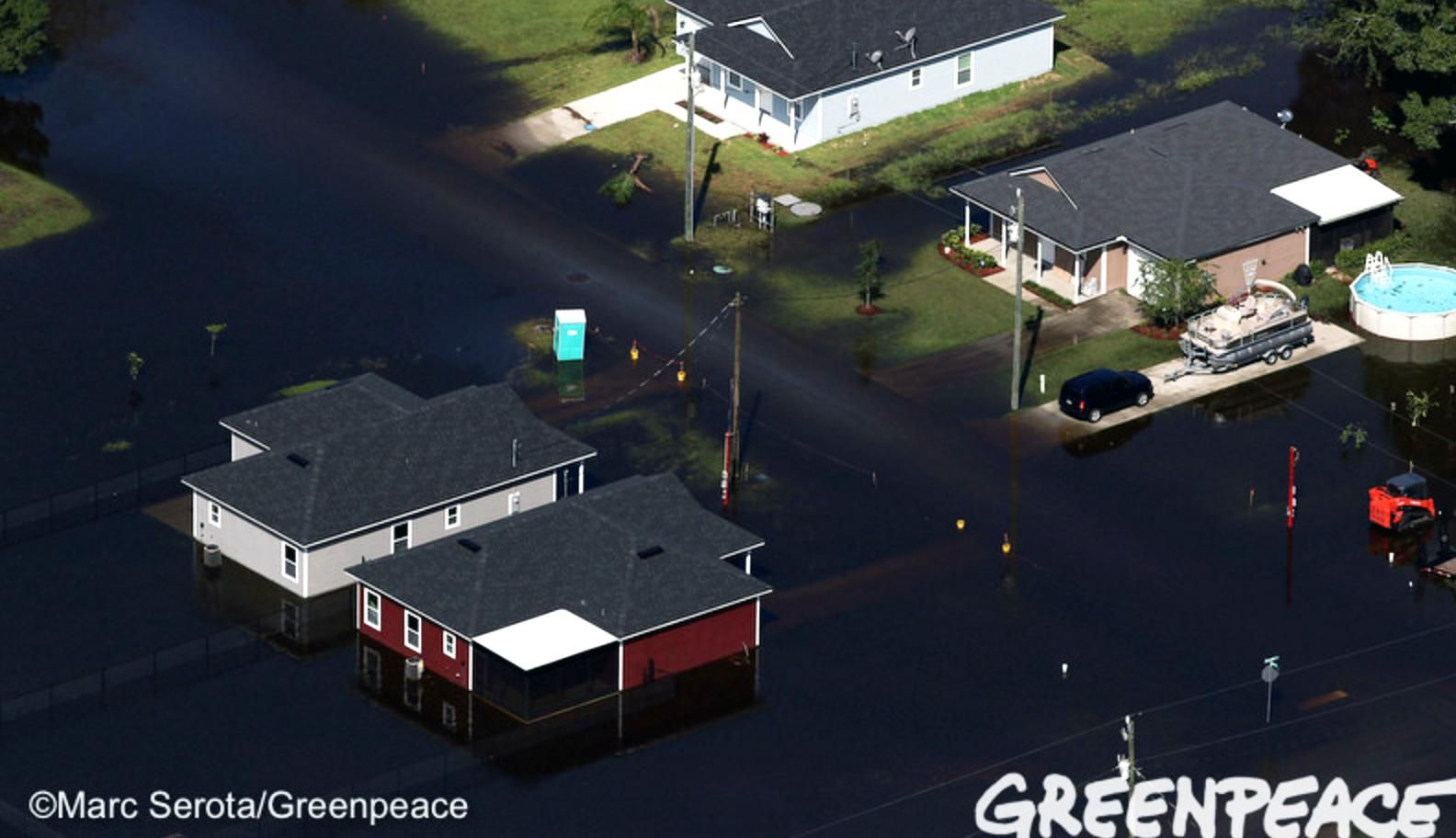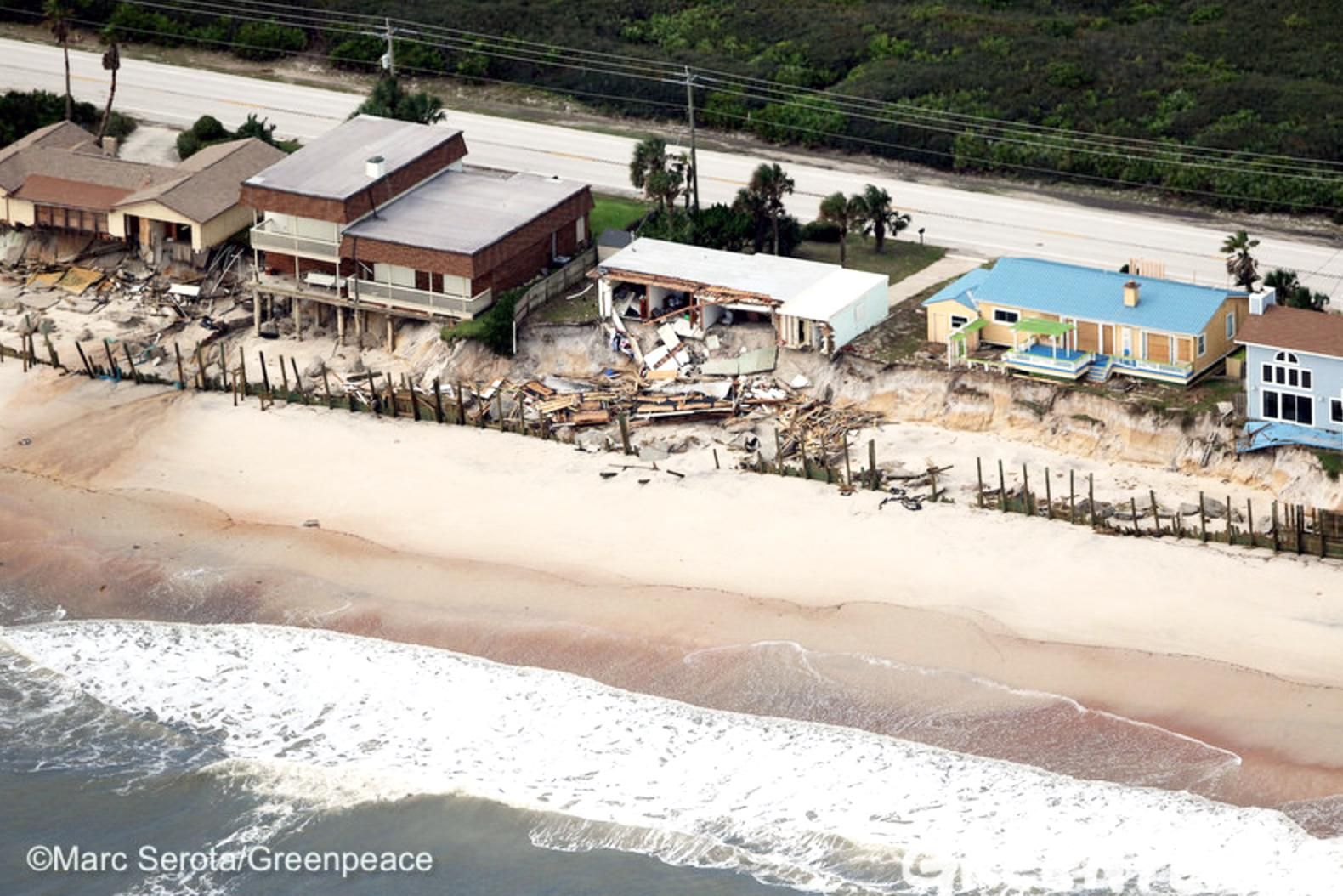

By John Hocevar
In 1992, Hurricane Andrew ripped through southeast Florida, doing more than $26 billion in damage and killing at least 65 people. At the time, I was working on a masters degree in marine biology in southeast Florida; several of my close friends lost their homes during the storm.
Our marine lab was at the end of a barrier island and there were so many overturned Australian pines along the road that it looked like someone had dumped a giant bag of Lincoln Logs. I remember helping friends move their belongings off houseboats and out of trailers to higher and safer ground, and the mint green color of the sky just before our transformer blew up.

Strangest of all, I remember being asked to shoot holes in the deck of a yacht to try to put it on the bottom and prevent it from destroying everything else by being thrown around by wind and storm surge.
Two decades later, another devastating storm—Hurricane Matthew—has wreaked havoc in the southeastern U.S. and claimed more than 1,000 lives in Haiti.
The Link Between Climate Change and Hurricane Season
For a long time, the science has been clear that our reliance on fossil fuels has not only been heating our planet, but also fueling bigger and more devastating storms.
Hurricanes Katrina and Sandy helped make this real for millions of people, especially those who lost homes or loved ones in New York, New Jersey, Alabama, Louisiana and Mississippi.
It has also been clear for a long time that Florida, with its expansive coastline covered with high rise hotels and condominiums often just a few feet above sea level, is among one of the most vulnerable places in the world to extreme weather heightened by climate change.

I studied coral reef conservation in grad school. At the time, coral bleaching was a new phenomenon, and no one had yet imagined that coral reefs might be driven to extinction in the coming decades. Much of Florida’s reef tract has been given State Park or National Marine Sanctuary status, but in recent years it has been dying so quickly you can almost watch it happen.
Climate-driven bleaching is one of the main culprits, with implications for a tourism industry that brings 100 million people and $50 billion to Florida each year.
Climate Change and the Politics of Denial
By outright denying the science of climate change and the threat it poses to his state, Florida Gov. Scott has utterly failed the people of Florida.

Instead of working to reduce carbon emissions and build strategies to cope with climate impacts like sea level rise, erosion, flooding, saltwater intrusion, insect-borne disease outbreaks and extreme heat, he has stuck his head in Florida’s sand. Famously, Scott even banned state employees from using the phrase climate change. This would be irresponsible anywhere, but in a state like Florida on the frontlines of the climate battle, it borders on criminal negligence.

Scott has been busy dealing with the impacts of Hurricane Matthew on Florida’s people, environment and businesses, which left more than 1,000 dead in Haiti and is the worst to hit Florida in decades.
Now that the waters receded and the power is back on, we need to think carefully about whether climate deniers like Scott—and his party’s presidential nominee Donald Trump—are suitable candidates to take responsibility for our future.
"Yes – Donald Trump Is a Threat to the Planet" | My latest commentary at @EcoWatch: https://t.co/Uhzxwsvlo1#MadhouseEffect
— Prof Michael E. Mann (@MichaelEMann) October 3, 2016
For a growing number of people who suffer at the hands climate-denialist politics, the answer is clear.
John Hocevar is a trained marine biologist and an accomplished campaigner, explorer and marine scientist, John has helped win several major victories for marine conservation since becoming the director of Greenpeace’s oceans campaign in 2004.

 233k
233k  41k
41k  Subscribe
Subscribe 